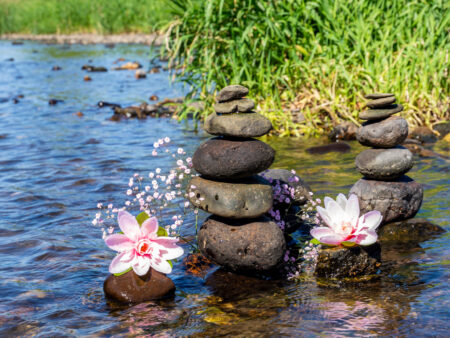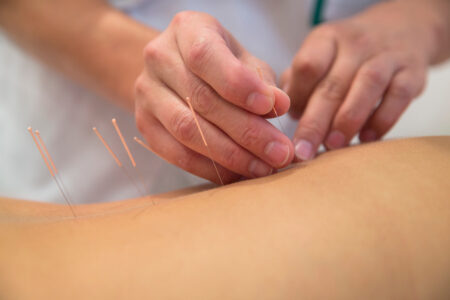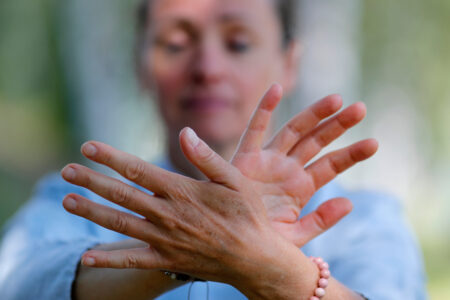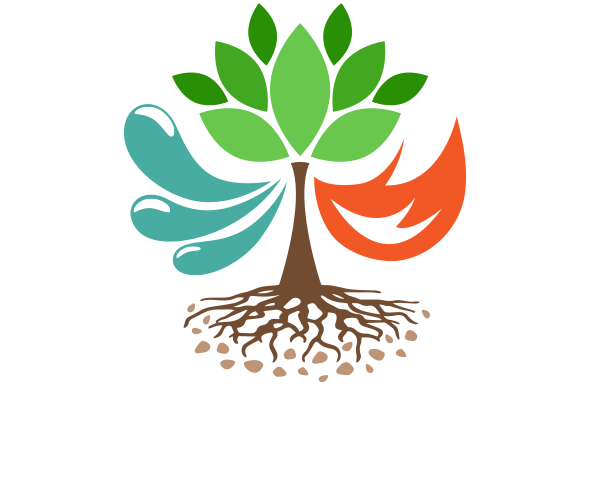“What is Qi?” is a common question that we’re asked in the clinic. This type of exchange is similar to your child asking you why the sky is blue for the first time. Qi is often referred to as the “spark” in the machine, and it’s a concept that’s very challenging for people in Western society to understand and/or accept.
Why Is It Difficult to Understand Qi?
One of the reasons it may be difficult for people in Western society to understand Qi is that it cannot be quantified or measured. At a young age, kids learn about the scientific method and that they can measure results. Even though Qi can be abundant, deficient, and/or stagnated, it isn’t as clear-cut as looking at the meniscus of a test tube. Therefore, the misunderstanding or reluctance to accept Qi as real in Western society is fair, but what about something more familiar, like love? The same could be said for it, and most would agree it’s very real.

What is Qi?
Simply put, Qi is life force or energy. A rock, for example, has no Qi, but a young child should be abundant in Qi or Yang energy. According to Chinese medicine, Qi is said to be produced by the spleen. The spleen extracts the pure essence from water & food and converts it to what’s known as “Gui Qi,” which is the foundation of Qi and Blood. Although Qi cannot be measured, we can easily see if it’s strong. For example, consider the devastation that takes place after a storm. Some trees are able to withstand the high winds, whereas others cannot. We can presume the trees that stand strong are abundant in Qi and well nourished, whereas others are weak and topple over.
“If Qi is flourishing, there is health; if it is weak, there is disease; if it is balanced, there is quietness; if it moves in the wrong direction, there is disease.” – Giovanni Maciocia

How to Increase Qi
Practices like Qi-Gong focus on cultivating Qi and gently moving it throughout the body. One of the first exercises usually taught in Tai-Chi or Qi-Gong is a technique called “Holding the Ball.” This involves the student holding their hands about a foot apart and gently moving them closer and closer together until a force is felt. This force is Qi. Once the ball is harnessed, it can be manipulated and moved around the body and is usually very soothing and relaxing. Compared to other martial arts, this exercise is gentle, calming, and restorative.
Acupuncture is another way to increase one’s Qi. Acupuncturists evaluate patients and determine imbalances within yin and yang and then use acupuncture to balance the Qi. Emotional constraint, sleep deprivation, and malnutrition are just a few examples of how Qi can become depleted or stuck. By living a balanced life, practicing Tai Chi and Qi-Gong, and taking other self-care measures, we stand a better chance of our energy remaining balanced.
Don’t let your Qi remain unbalanced or depleted. Speak with a Wu Wei Wellness specialist today to see how we can help!


